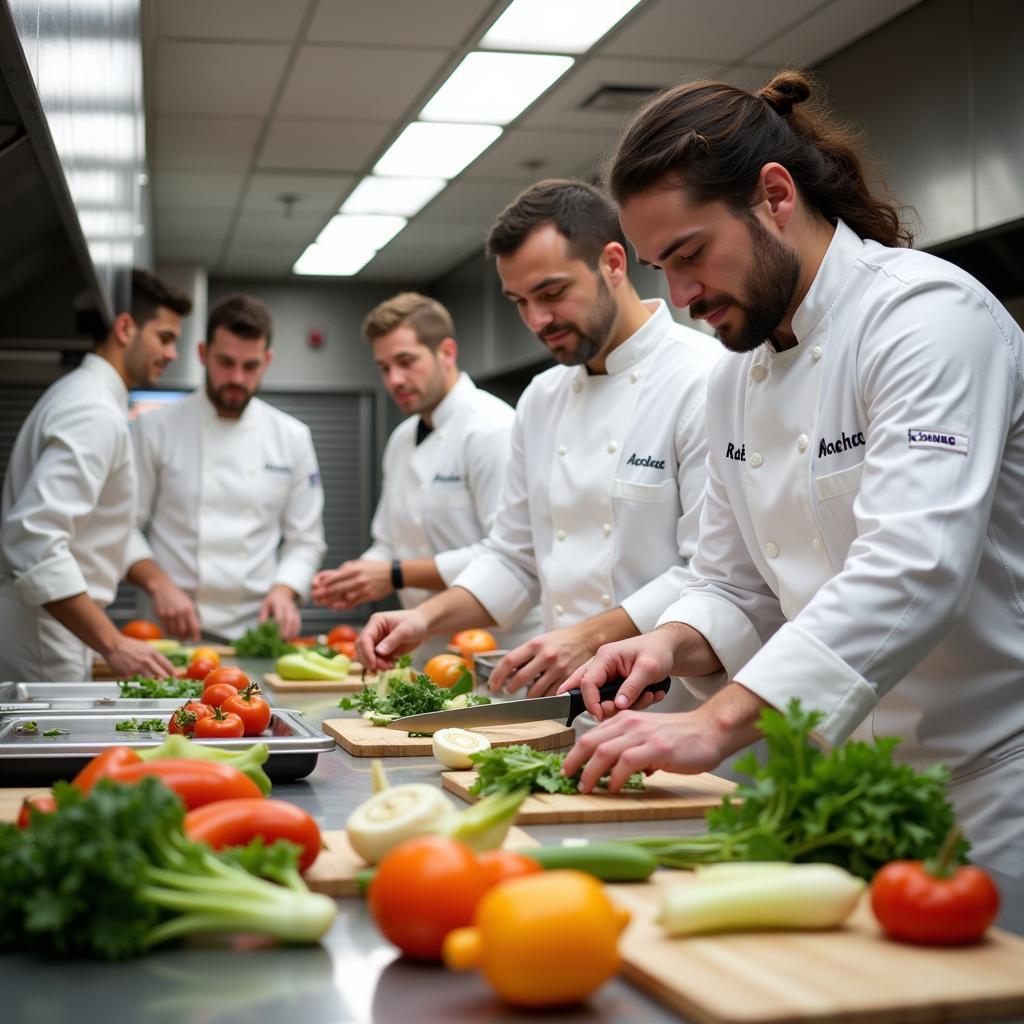The food service industry is vast, encompassing a wide range of roles from line cooks to restaurant managers and everything in between. If you’re passionate about food and hospitality, a career in food service might be the perfect fit for you. But with so many options, it can be challenging to know which career pathway to choose.
This article explores the diverse career paths in food service, highlighting the skills and education needed to succeed in this dynamic and rewarding industry. Whether you’re just starting or looking to level up your culinary career, this guide will provide valuable insights to help you navigate the exciting world of food service.
Culinary Arts: The Heart of Food Service
For those with a true passion for food and cooking, the culinary arts pathway offers a direct route into the heart of the food service industry. This path involves developing a strong foundation in culinary techniques, food safety, and kitchen operations.
Culinary Schools and Training Programs
Numerous culinary schools and training programs offer comprehensive curricula designed to equip aspiring chefs with the skills and knowledge necessary to excel in professional kitchens. These programs often combine classroom instruction with hands-on experience, allowing students to master essential techniques under the guidance of experienced chef instructors.
Building Your Culinary Career
Graduates of culinary programs can pursue entry-level positions such as line cook, prep cook, or pastry assistant, gradually working their way up the ranks. With experience and dedication, chefs can advance to sous chef, head chef, or even open their own restaurants.
Hospitality Management: Leading the Front of House
While the culinary team creates delicious dishes, the front-of-house staff ensures a positive dining experience for guests. This is where hospitality management comes in.
The Role of Hospitality Professionals
Hospitality professionals possess exceptional customer service skills, a deep understanding of restaurant operations, and the ability to create a welcoming and efficient dining environment. They manage reservations, greet guests, serve food and beverages, handle billing, and address customer inquiries or concerns.
Hospitality Management Programs
Aspiring hospitality managers can benefit from pursuing degrees or certifications in hospitality management. These programs cover topics such as restaurant management, hotel operations, event planning, and customer service. Practical experience through internships or part-time jobs in restaurants or hotels is invaluable in gaining hands-on experience.
Specialized Food Service Careers: Exploring Niche Roles
Beyond the traditional culinary and hospitality paths, the food service industry offers a variety of specialized roles to suit different interests and skill sets.
Food Stylist
Food stylists use their artistic talents and culinary knowledge to create visually appealing food presentations for photographs, commercials, and other media. They work closely with photographers and food brands to make dishes look their best.
Food Writer or Blogger
If you have a way with words and a passion for food, a career as a food writer or blogger might be the perfect fit. These professionals create engaging content about food, from restaurant reviews and recipes to food trends and industry news.
Food Scientist or Technologist
For those with a scientific background, a career as a food scientist or technologist combines a love of food with scientific expertise. They work in research and development, ensuring food safety and quality, and developing new food products.
Tips for Success in Food Service Careers
Regardless of the specific career path you choose, certain qualities and skills are essential for success in the food service industry.
- Passion for Food and Hospitality: A genuine love for food and a desire to provide excellent service are fundamental.
- Strong Work Ethic: Food service often involves long hours, demanding tasks, and working under pressure. A strong work ethic and a positive attitude are crucial.
- Attention to Detail: From food preparation to customer service, every detail matters. Paying close attention to detail ensures quality and customer satisfaction.
- Teamwork and Communication: Food service is a team effort, requiring effective communication and collaboration among all staff members.
- Adaptability and Problem-Solving: The ability to adapt to changing situations, solve problems on the fly, and handle customer requests efficiently is essential.
Conclusion
A career in food service offers a dynamic and rewarding experience for individuals passionate about food, hospitality, and creating memorable dining experiences. Whether your interests lie in the culinary arts, hospitality management, or specialized roles, numerous career pathways can lead to a fulfilling career. By developing the necessary skills, pursuing relevant education, and embracing a strong work ethic, you can carve your own path to success in the exciting world of food service.



